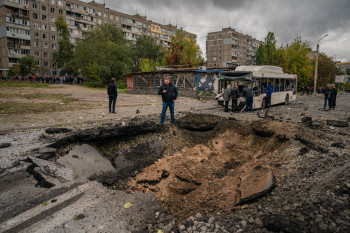Russia's ‘blackout blitz’ on Ukrainian energy sites escalates ahead of winter
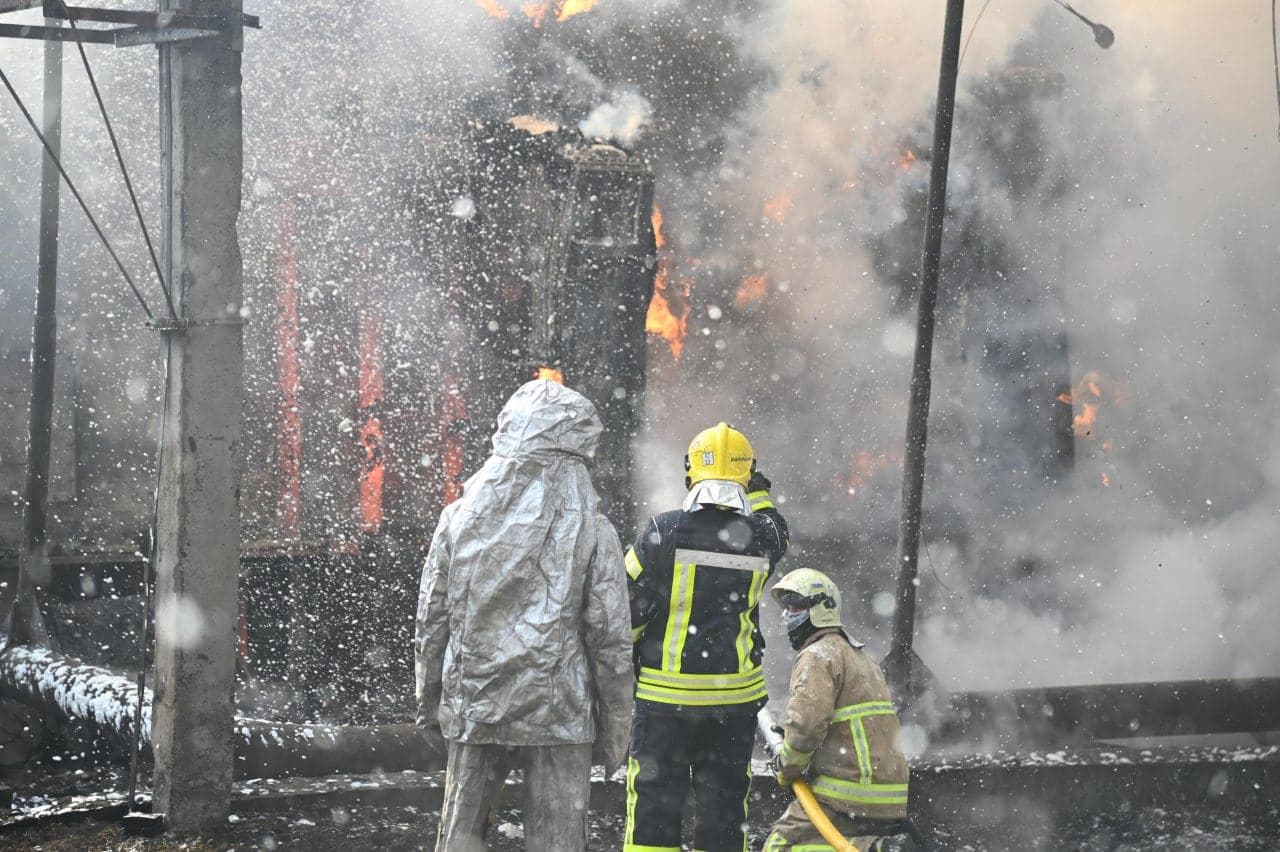
Using missiles and kamikaze drones, Russia has recently intensified attacks on Ukrainian energy infrastructure, causing regular blackouts across the country.
Since Oct. 10, Russia launched over 300 strikes on Ukraine's power stations, destroying around a third of the country’s energy-generating capacity. Russia openly admits that Ukraine's energy infrastructure is among its key targets.
President Volodymyr Zelensky urged citizens to cut their electricity usage starting Oct. 20.
Ukraine's national energy company Ukrenergo announced that the company would be shutting down power across the country for several hours daily to maintain the country's energy system afloat.
The attacks have little to do with military logic, but seek to inflict humanitarian catastrophe by hindering civilians’ access to electricity and heat, according to Kirill Mikhailov, an expert with the Conflict Intelligence Team, a Russian investigative project.
"(Russian President Vladimir) Putin believes that this will make Ukraine surrender," Mikhailov told the Kyiv Independent.
Intensifying attacks
Russia's new wave of military escalation began on Oct. 10, when it launched widespread missile attacks across the country that hit power facilities in Kyiv and other major cities, such as Lviv in the west and Kryvyi Rih in the southeast.
Among the sites that continue to be targeted is Burshtyn thermal power plant in Ivano-Frankivsk Oblast. It is one of several sites in western Ukraine that produce electricity exported to Europe.
Ivano-Frankivsk Oblast Governor Svitlana Onyshchuk said electricity production sharply declined after the attack.
The Oct. 10 attack forced Ukraine to stop exporting energy to Europe immediately. The export hasn’t been restarted yet.
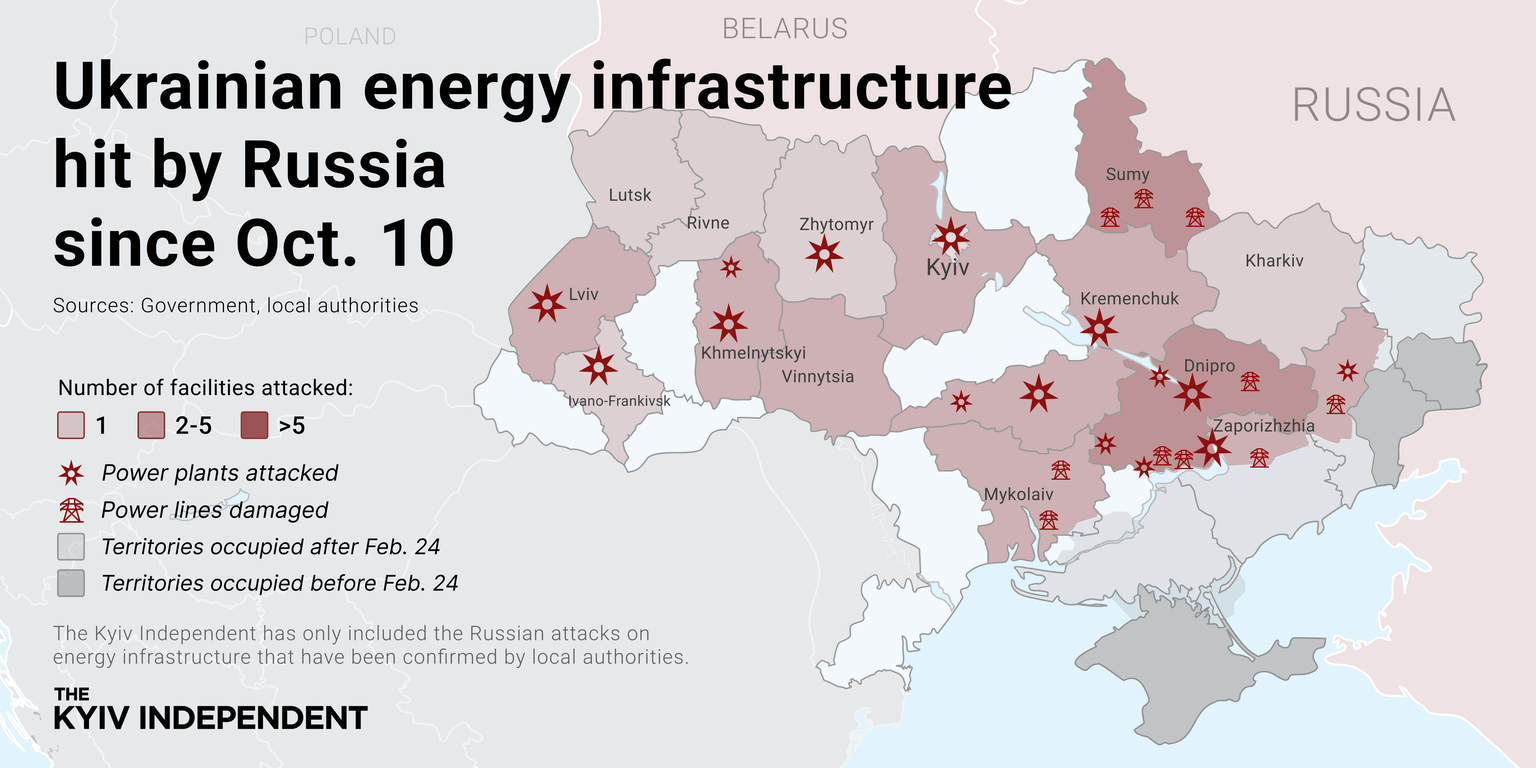
The map shows energy infrastructure hit by Russian attacks since Oct. 10, 2022, when Moscow intensified its campaign of targeting Ukraine's critical infrastructure with missiles and drones.
The National Police said that 29 critical infrastructure facilities, including power stations, were hit. Since then, power outages across Ukraine have become a new reality.
Mass power outages were reported in Lviv Oblast, leaving some 1.5 million people without electricity after hitting two substations in and near the regional capital. The same facilities were struck the next day again, inflicting further damage.
In mid-October, Kyiv also started experiencing its first-ever sporadic blackouts since the full-scale war began in February.
Political and energy experts the Kyiv Independent spoke to agreed that the Oct. 10 large-scale coordinated attack was planned well in advance, while the plan to destroy Ukraine's energy infrastructure was well planned.
Andrian Prokip, a Kyiv-based energy expert with the Kennan Institute, said that since Ukraine's energy infrastructure was designed during Soviet rule, the Kremlin must hold all necessary plans and documentation.
Prokip says Russia knows where to hit. He added that Russia's likely aim was to roll a nationwide blackout to frighten Ukrainians.
Theoretically, a nationwide blackout remains a possibility if Russia can hit a "critical number of some specific and important facilities" while inflicting the right amount of damage, Prokip said.
Prokip explained that a lack of electricity means that all other utilities will cease to work, including centralized water supplies and centralized heating.
"This may mean the country will go dark," but it would depend on whether Russia has enough capacity to strike energy equipment across Ukraine and how well Ukrainian air defense would perform, he added.
"This would be very difficult," he told the Kyiv Independent.
However, in an interview with Ekonomichna Pravda, the CEO of Ukraine’s largest private energy company DTEK Maxim Timchenko said that a nationwide blackout is improbable, given how Ukraine’s energy systems have withstood Russian attacks so far.
He said during the same interview that Ukraine’s energy system is built like a loop, so another part picks it up if one part suddenly stops working.
Political game
It's not a coincidence that Russia intensified its attacks after Ukraine's successful counteroffensive in the country's east and south that turned the tide of the war.
Kyiv-based political scientist Oleh Saakian said Kremlin propagandists have been calling for attacks on Ukraine's critical infrastructure since late July. This was when Russia's military progress was stalled for a few weeks after it had captured Luhansk Oblast.
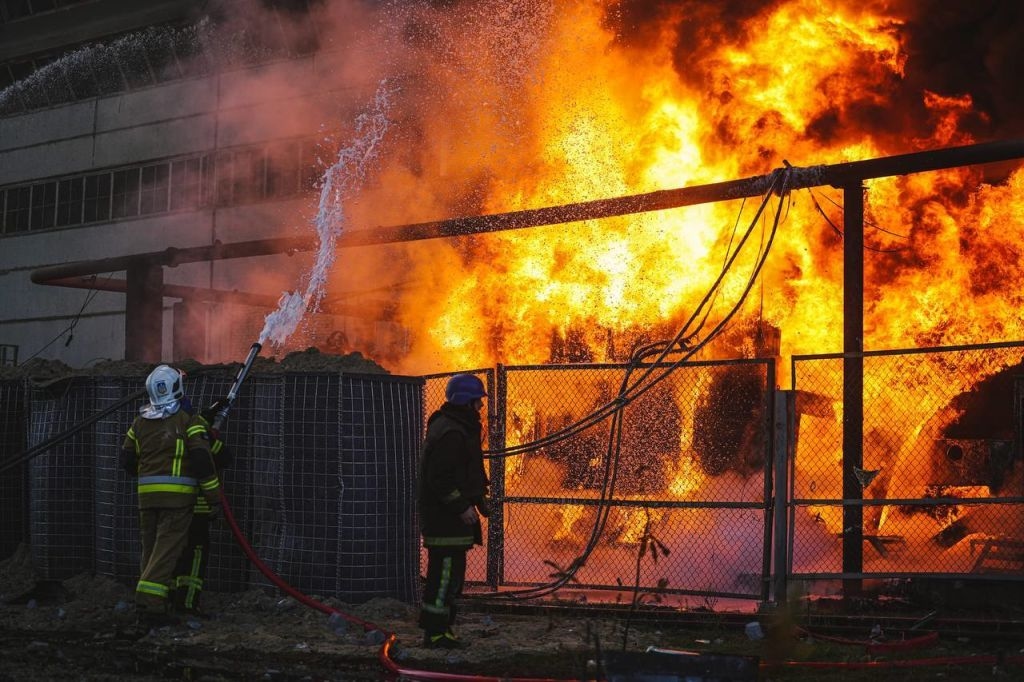
Saakian believes that Russia purposefully decreased the intensity of the strikes before Oct. 10 to stock up on missiles to prepare for an escalation. He thinks that Moscow meant to start the campaign later when the weather is colder, but it was forced to change plans due to the blast at the Crimean Bridge, connecting occupied Crimea with Russia, on Oct. 8.
The Kremlin accuses Ukraine of blowing up the bridge. Ukraine has officially denied involvement. "We definitely did not order that, as far as I know," Zelensky said.
Dealing with an embarrassing blow, Russia had to show that it could still inflict serious damages on Ukraine in order to raise support for the war domestically, Saakian said.
"(These are) instruments of terror," Saakian told the Kyiv Independent.
Energy facilities destroyed
The recent attacks target the power grid, substations, and thermal and nuclear power plants.
In addition to that, a lot of critical infrastructure in the occupied territories has been destroyed during fighting. In the recently liberated areas, repairs of energy facilities are often difficult or impossible due to Russia’s heavy shelling.
Most liberated towns and villages were cut off from electricity, gas, and water supply for months.
Energy expert Hennady Riabtsev told the Kyiv Independent that the full restoration of energy facilities could occur only after the war.
For now, the energy flow in Ukraine depends on how well Ukrainian forces can shoot down targets and how much further they can advance on the battlefield, he added.
The most vulnerable part of the energy infrastructure is compressor stations, which are needed to channel natural gas to households, according to Riabtsev.
"This heating season will be the most difficult in the modern history of Ukraine," Riabtsev said.
The head of DTEK Timchenko told the Kyiv Independent that some measures are being taken to protect its energy facilities, such as building cement blocks around them and working closely with the military.
Timchenko added that DTEK suffered over $8 million in damages to power stations between Oct. 10-12.
He added he couldn't calculate how much DTEK had lost since the start of the full-scale invasion. Regarding DTEK's property in occupied territories, Timchenko said he doesn't know what is happening to them and how damaged they are.
Meanwhile, in early March, Russian forces captured Europe's biggest nuclear power plant in Ukraine's southeast. The occupied Zaporizhzhia Nuclear Power Plant (ZNPP) used to make up one-fifth of Ukraine's electricity.
Ukraine has begun relying more on renewable energy in recent years, but electricity generators such as wind turbines are located in the occupied parts of Zaporizhzhia Oblast due to its proximity to the sea.
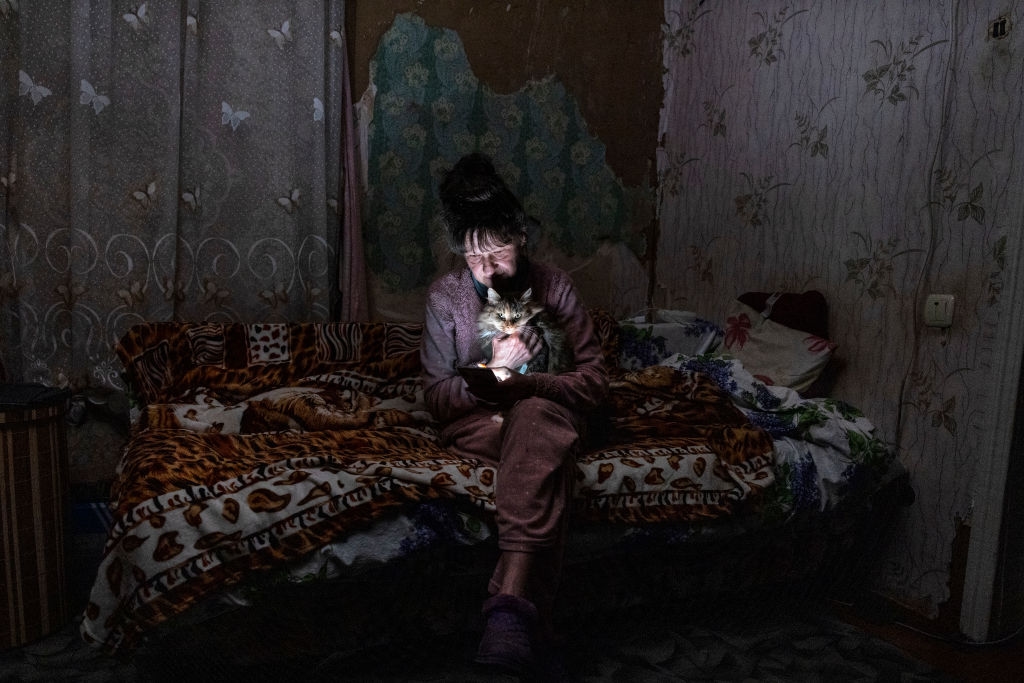
Scheduled blackouts
While Russia has hit some energy facilities earlier, Ukrainians started feeling that the country’s energy resource was dwindling only after the October attacks.
Authorities urged citizens all across the country to minimize their electricity consumption between 7 a.m. and 11 p.m.
The state energy company Ukrenergo told Ukrainians to check with the regional distributor to see when their area will be cut off from electricity. In Kyiv, DTEK has started cutting buildings’ off electricity for four hours a day. The company has published a schedule of planned outages for every street.
"We do not exclude that with the onset of cold weather, we will be asking for your help (to use less electricity) even more frequently," Ukrenergo said on Telegram.
Ukrainian officials had warned that Russian attacks on Ukraine's energy facilities would only continue going forward.
Energy experts agree that Ukraine's energy sector has proven to be sturdy, with repairs quickly being done to resume the flow of electricity. Still, only reliable air defense can ensure that Ukrainians will have heat and electricity during winter.


